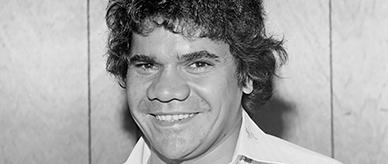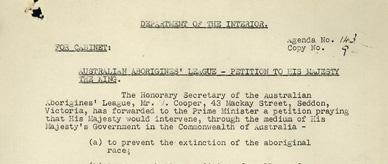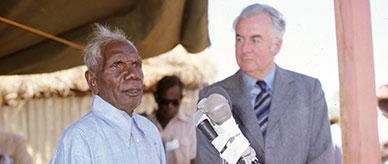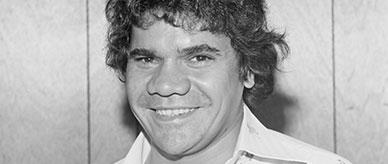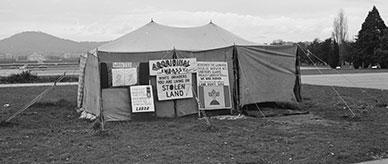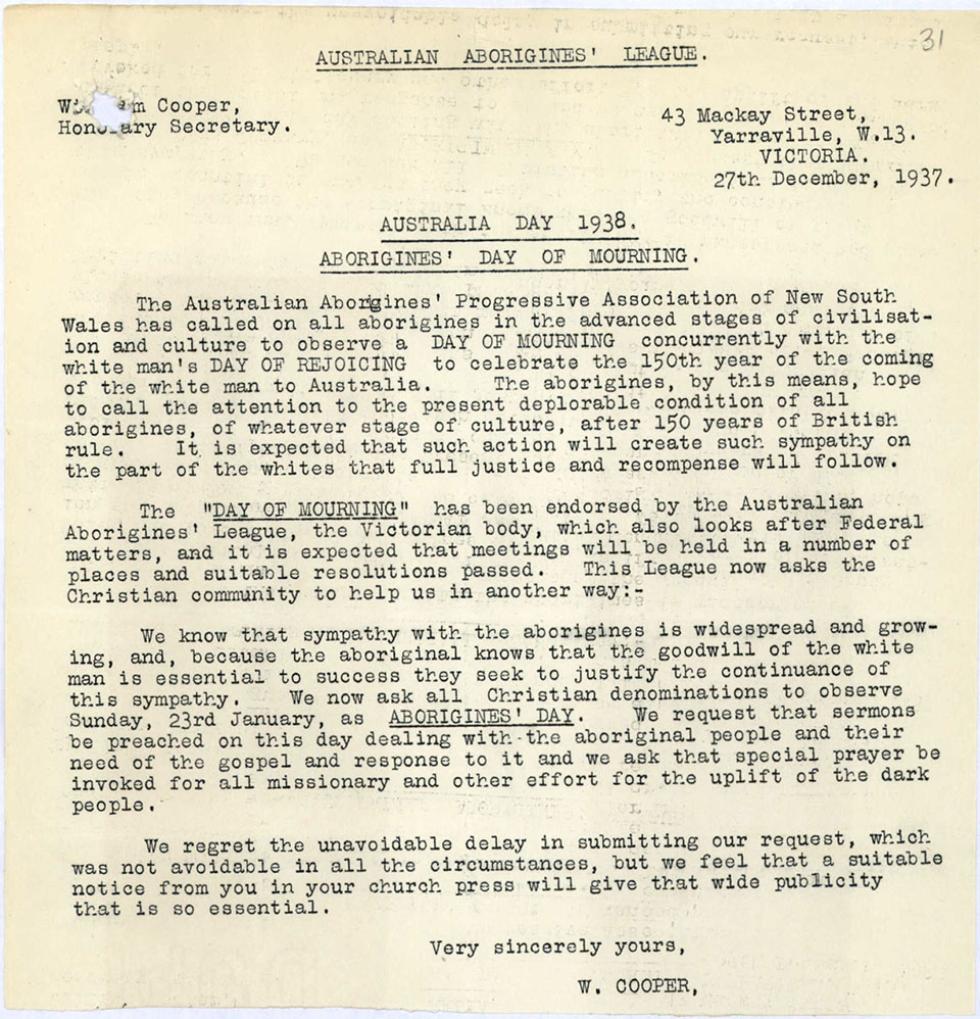


Transcript
[Underlined] AUSTRALIAN ABORIGINES' LEAGUE.
[handwritten number '31' in top right corner.]
William Cooper, [Tear in page covering most of word 'William'.]
Honorary Secretary.
43 Mackay Street,
Yarraville, W.13.
VICTORIA.
27th December, 1937.
[Underlined] AUSTRALIA DAY 1938.
[Underlined] ABORIGINES' DAY OF MOURNING.
The Australian Aborigines' Progressive Association of New South Wales has called on all aborigines in the advanced stages of civilisation and culture to observe a DAY OF MOURNING concurrently with the white man's DAY OF REJOICING to celebrate the 150th year of the coming of the white man to Australia. The aborigines, by this means, hope to call the attention to the present deplorable condition of all aborigines, of whatever stage of culture, after 150 years of British rule. It is expected that such action will create such sympathy on the part of the whites that full justice and recompense will follow.
The [start underlined text] "DAY OF MOURNING" [end underline] has been endorsed by the Australian Aborigines' League, the Victorian body, which also looks after Federal matters, and it is expected that meetings will be held in a number of places and suitable resolutions passed. This League now asks the Christian community to help us in another way: -
We know that sympathy with the aborigines is widespread and growing, and, because the aboriginal knows that the goodwill of the white man is essential to success they seek to justify the continuance of this sympathy. We now ask all Christian denominations to observe Sunday, 23th January, as [start underlined text] ABORIGINES' DAY [end underline]. We request that sermons be preached on this day dealing with the aboriginal people and their need of the gospel and response to it and we ask that special prayer be invoked for all missionary and other effort for the uplift of the dark people.
We regret the unavoidable delay in submitting our request, which was not avoidable in all the circumstances, but we feel that a suitable notice from you in your church press will give that wide publicity that is so essential.
Very sincerely yours,
W. COOPER,
This record is a letter written by Yorta Yorta man William Cooper. He was a political activist and community leader who spent his life lobbying state and territory governments on behalf of First Nations people.
William Cooper was the founding secretary of a group called the Australian Aborigines League. This record, written on behalf of the League, is a special kind of letter called a circular. This means that it was sent to a large number of recipients: in this case, to leaders of Christian churches.
In the letter, William Cooper asks Christian leaders to preach sermons on Sunday 23 January 1938 in support of Aboriginal people. He also tells them about a protest that is being organised for 26 January 1938. He writes that Aboriginal people intend to ‘observe a DAY OF MOURNING concurrently with the white man’s DAY OF REJOICING to celebrate the 150th year of the coming of the white man to Australia.’
The 1938 Day of Mourning was the first national civil rights gathering organised by First Nations activists from different states working together. For many Aboriginal and Torres Strait Islander people, 26 January remains a day to mourn and grieve the devastating impacts of colonisation.
Since 1994, the federal Government has marked 26 January as a nation-wide annual public holiday called ‘Australia Day’. It is a contested day on our national calendar, marked across the country in dramatically different ways, with some groups celebrating while others mourn or protest.
Related records
Related themes
Need help with your research?
Learn how to interpret primary sources, use our collection and more.

